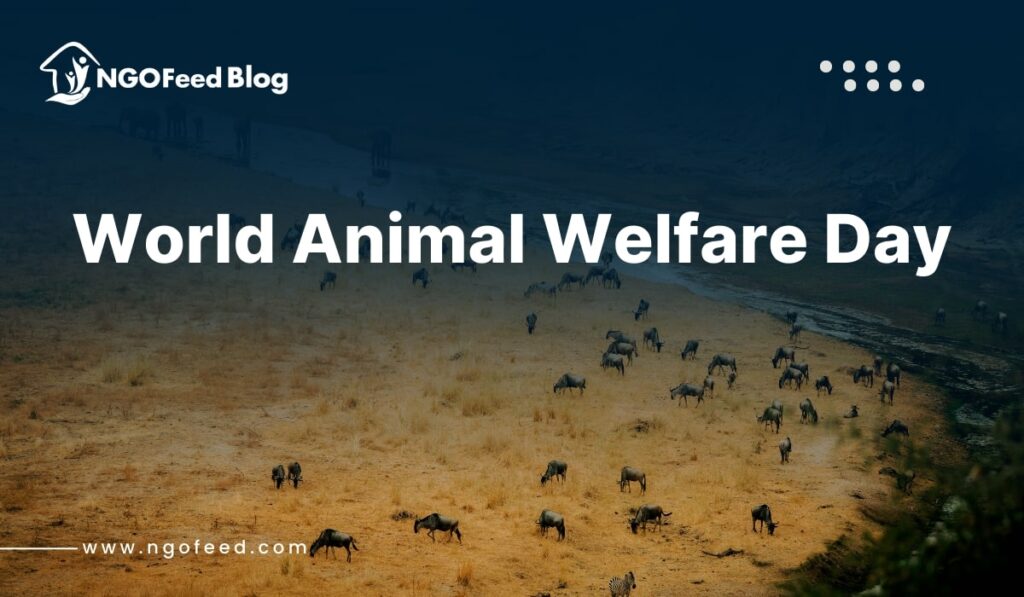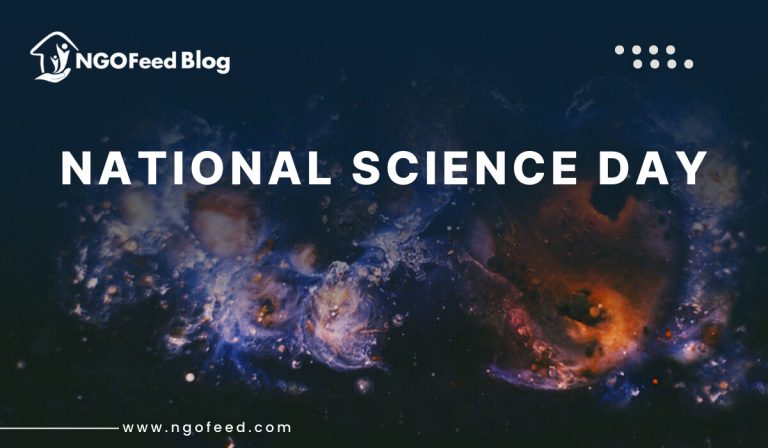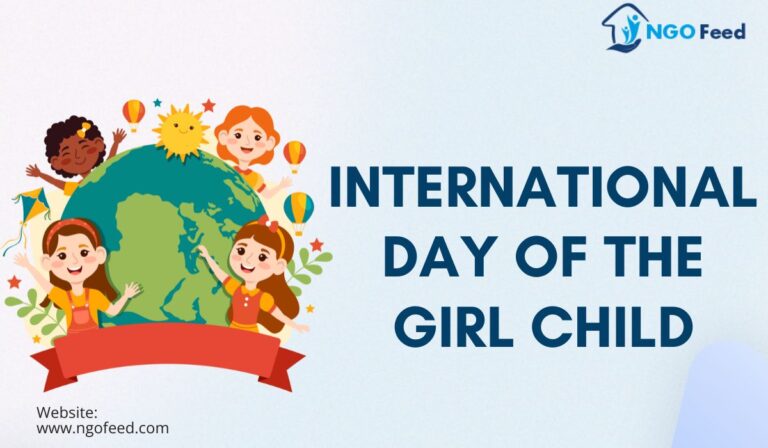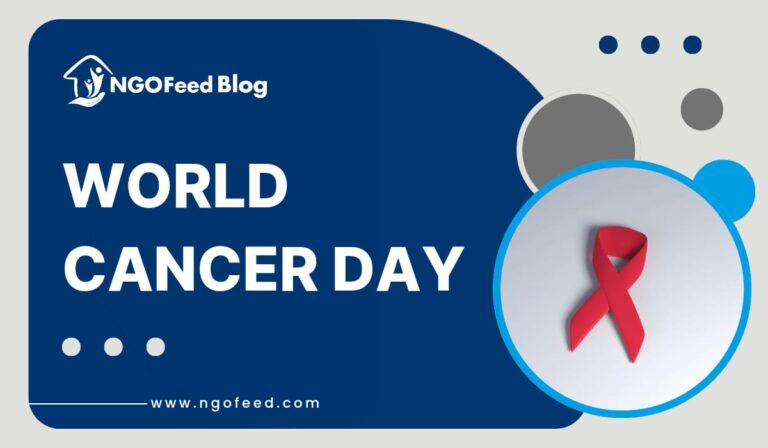World Animal Welfare Day is celebrated on the 4th of October annually by people across the world. On this day, people from all over the world unite to raise awareness about animal rights and the necessity of their protection. It is celebrated as a movement to encourage people to take action against animal cruelty far and wide.
Whether you are an animal lover, a pet owner, or a livestock farmer, Animal Welfare Day is all about educating, raising voices against the cruelty the animals have been facing, advocating for the voiceless and making a difference.
Table of Contents
What is the History of World Animal Welfare Day?
World Animal Welfare Day was established on March 24, 1925, in Berlin, Germany. Heinrich Zimmermann, a polished journalist and activist, first organised the Animal Welfare Day celebration at Berlin’s sports palace. The event was attended by over 5,000 people across the world. This marked up the day as the beginning of an international movement for animal welfare.
However, the date was officially replaced by 4th October in 1931 as per Zimmermann’s proposal. Because he wants to celebrate the day to honour Saint Francis of Assisi, known as the patron saint of animals and environmentalists. His profound love for birds and animals made him popular all over the world. He died on the 4th of October in 1226, and it was his legacy that Zimmermann wants the world to continue.
What is Animal Welfare?
Animal Welfare refers to the physical and emotional well-being of animals. It is the quality of their living. Ensuring they are free from any harm, physical abuse, suffering, harassment, hunger or pain. Improving the quality of their life from birth to death.
It’s about ensuring the well-being of your pet animal, wildlife or animals that are in livestock; it’s about animals that are used for entertainment purposes or animals that are affected by industrial purposes. All over, Animal welfare is about allowing the voiceless species to live with peace and dignity under human treatment.
Also Read: Role of NGOs in Animal Welfare
The Fundamentals of Animal Welfare:
In 1979, Britain’s Farm Animal Welfare Council (FAWC) introduced the five freedoms of animal welfare, aiming to create a standard of care for animals’ well-being. Such as follows:
- Freedom from hunger and thirst
- Freedom from discomfort
- Freedom from pain, injury and disease
- Freedom to express normal behaviour
- Freedom from fear and distress
The five concepts are to provide the animals with the freedom to enable them to express their natural behaviour with confidence and allow them to live a healthy life in the human-centric world.
The Importance of Animal Welfare
Taking care of animals’ physical and emotional well-being is a crucial step to promote a healthy relationship between man and animal. Because we are living side-by-side and it is our responsibility to make animals feel comfortable around us. Whether we are individual animal lovers or pet owners, taking care of the animals surrounding us with proper diet and medical treatment is essential.
This way, we can prevent the spread of diseases from animals to humans. Moreover, enabling proper nutrition and care for animals in livestock promotes healthier reproduction and farming. Wildlife habitats play a crucial role in maintaining the balance of our ecosystem. Conserving such endangered species promotes sustainability in the environment.
In sum, Animal welfare is not only beneficial for animals but also for humans to have companionship who can reduce stress and provide support. Additionally, keeping the balance of a healthy ecosystem.
Also Read: Animal Protection Society NGO: Read the Success Story, How they Work to Help Street Animals
What are the key threats to animals?
Several issues are identified by Animal Welfare Organisations that pose serious threats to animals and their well-being. Such are;
- Habitat Destruction: The loss of habitat is a huge threat to nature, causing ecological imbalance. It happens due to man-made exploitation of natural resources and deforestation for industrial purposes. This makes the place unlivable for wildlife habitats and forces them to displace. Leading global extinctions of endangered species and ecological imbalance.
- Factory Farming: Factory farming refers to raising livestock in an artificial environment. Where the humidity and temperature are controlled by electronic systems for mass production. Due to living in an unnatural environment, animals suffer from physical and psychological issues. All because of industrial profit, which not only causes to suffer the innocent animals but also damages the climate and the ecosystem of Earth.
- Experimenting on animals: There are a huge number of animals involved globally in experiments for scientific research, medical treatment or consumer protection. It causes suffering and pain to the experimental animals. Not only this, but for human benefits, harming the voiceless is reflecting the level of human cruelty and violating animals’ rights.
Also Read: Role of NGOs in Wildlife Conservation
- Animals used in entertainment: Animals are used for pet shows, circuses, or street shows for entertainment purposes. They face several threats, like being held in captivity, physical abuse, and being forced to behave for entertainment, something unnatural for their kind. This harms their physical and mental stability.
- Neglecting pet animals: Neglecting pet animals involves failure to provide the animals with their basic needs. Such are proper food, fresh water, adequate shelter and veterinary care. That can allow them to have access to a healthy life. Failure to provide such things leaves the animals with poor health conditions.
The roles and duties of legislation towards Animal Welfare
Legislation plays a vital role in preventing animal cruelty. Several animal protection laws have been created in order to protect animals from various backgrounds. Whether it’s domestic animals or wild animals, or animals that are working in farms or used for industrial purposes. There are laws to protect the rights of these species. There are regulations that apply to every kind of owner. Whether you are a pet owner or running livestock, or using animals for other commercial uses like entertainment or street shows. You are the owner, responsible for the animal’s welfare. In any case of cruelty, you have to pay for your crime. This way enforces the owner to take good care of their animals and ensures their stability under human control.
The Global Impacts of World Animal Welfare Day
The impact of World Animal Welfare Day can be seen all over the world. On this event of celebration, people from every corner of the globe, whether an individual animal lover, pet owner, animal activist, student, or non-profit organisation, gather together to raise their voices for the voiceless. On this one day of the occasion, people unite to take action against the animal cruelty that occurs worldwide. To spread awareness, educate people about the importance of animal welfare, and protect animals from human maltreatment.
A few of the most significant impacts of celebrating Animal Day that expanded globally are:
Also Read: Role of NGOs in Conservation and Biodiversity Protection
- Spreading awareness among educational institutions: This helps to educate students who are the future of their countries about the importance of the well-being of animals. What widely influences them to take active participations in Animal welfare programs.
- Creating legal frameworks: With the support and advocacy of individuals and animal welfare activities, it enforces the legislature to change the existing policies and create new welfare acts to protect the rights of animals.
- Wildlife conservation movements: Wildlife habitats, especially the endangered species, are often shadowed by their rare appearance. With the help of animal activities and NGOs in India, celebrating this day brings attention to these species, and awareness leads to support, such as funding, for their conservation and rehabilitation.
- Improving the lives of livestock animals: Various protests and campaigns organised on the occasion of Animal Day to expose the cruelty of humans against animals. That enforces the legislature to act, pushing the reformation of existing policies to safeguard these animals.
- Reforming mindsets: People from various cultural and religious backgrounds use animals, exploit them for their cultural satisfaction. Spreading knowledge and awareness among these people motivates them and helps to reform their mindsets about animals. That their life also matters on this earth.
How can we contribute to making the Earth a safer place for Animals?
Animals have been facing exploitation from the very beginning. However, people’s attention towards their condition has fallen lately. But there is always time to make a difference, even a small one kind gesture towards these innocent creatures does matter.
So, to contribute to allowing these animals to have a better life, you can;
- Choose cruelty-free products: Choose cruelty-free products to support the animals that are being tested on in labs for your consuming satisfaction. This way, there will be many like you who will go for the cruelty-free and who knows, one day, animal testing for human safety will stop forever.
- Raise your voice: Your voice matters. Speak out whenever you are a witness to animal exploitation. Because they can’t speak for themselves. Being silent makes you a supporter of the exploiter. Your one voice can influence others and become many voices.
- Choose to adopt: If you are really an animal lover, choose to adopt those abandoned animals left in the street, dirty and hungry. Empathise with their emotional condition, as they have no voice to call for help. Avoid getting attracted to the fancy pet shops, to stand against the trader who are doing business with these animals for their profit.
- Avoid consuming animal products: Try to eat less or avoid animal products. Go for ethical food to support the livestock animals. Those who are exploiting for mass production for consumers on demand.
- Donate to animal welfare: There are several groups or organization are work for animal welfare, and they need funds and support to continue their work. Your contribution towards them, whether financially or morally, can help to create a difference.
Conclusion
Animal Welfare Day is celebrated to spread awareness globally, to collect international voices to speak up on behalf of the voiceless animals. It is a reminder towards the human community to respect and show empathy towards their companions on this earth. Animals who are innocent and helpless in this human-centric world need only the freedom to live as naturally supposed to. Not as per human convenience. It is our responsibility as human beings to listen to the unheard pain these animals are bearing for our satisfaction. Animal welfare day is a call for action towards those unheard, to become their voice and fight against the cruelty that they are unable to do for themselves.
Frequently Asked Questions (FAQs)
When is the Animal Welfare Day?
Animal Welfare Day is celebrated annually on the 4th of October in honour of Saint Francis of Asis, the patron saint of animals and environmentalists.
Why do we celebrate Animal Welfare Day?
We celebrate Animal Welfare Day to spread awareness among people about animal cruelty, advocating on their behalf to protect their right to live a better life.
Have any global changes happened for animal welfare?
Yes! With the wide support of people’s participation globally in animal welfare, various improvements can be seen that including banning animal testing, reforming animal protection laws, improving the lives of livestock animals, etc.
Can individuals contribute to animal welfare?
Yes, individuals can support the animal welfare movement by adopting animals, taking care of street animals, using cruelty-free products and advocating for animal rights
How can we stop animal cruelty?
We can decrease the level of animal cruelty by becoming their voice, joining animal activists or groups to contribute to their project for the well-being of animals, spreading awareness, raising funds and educating people about the necessity of animal welfare.









